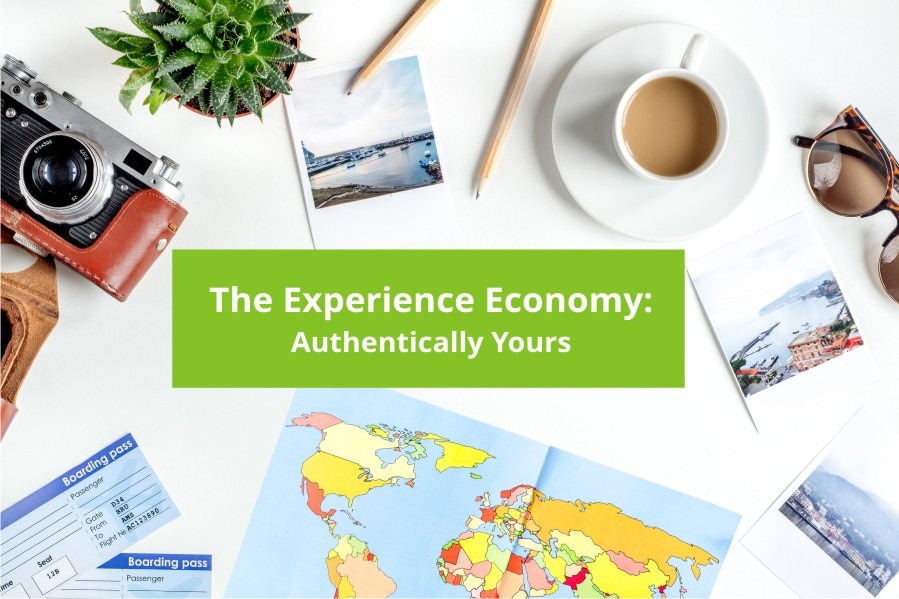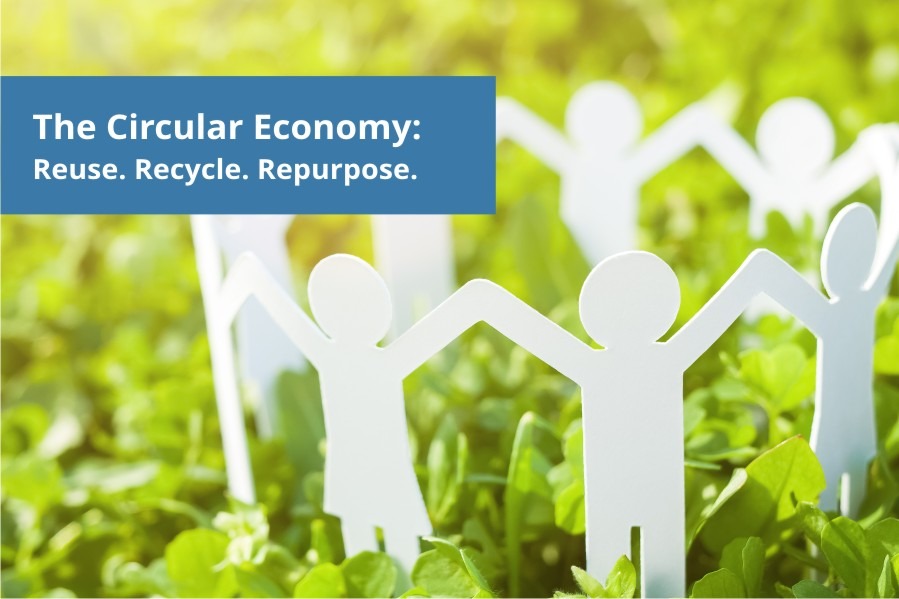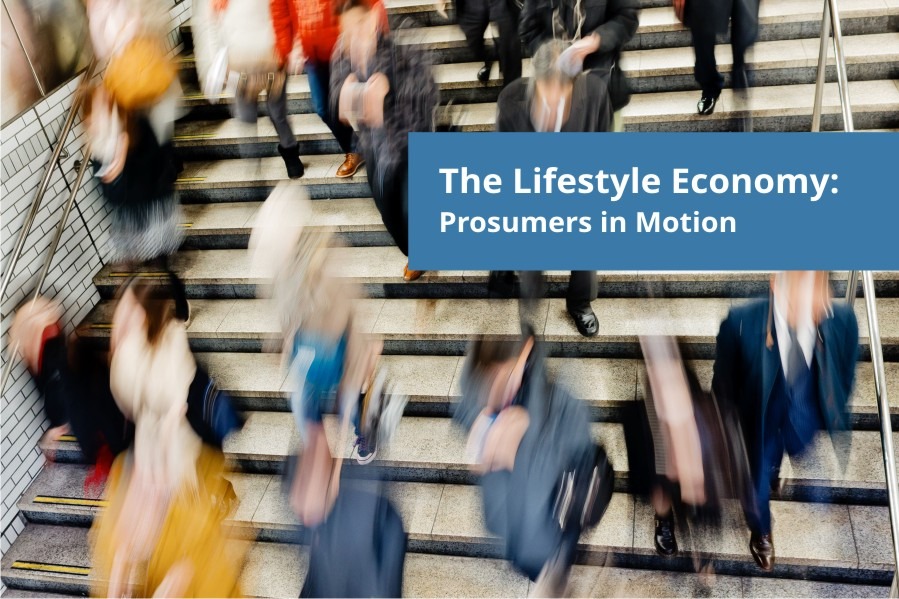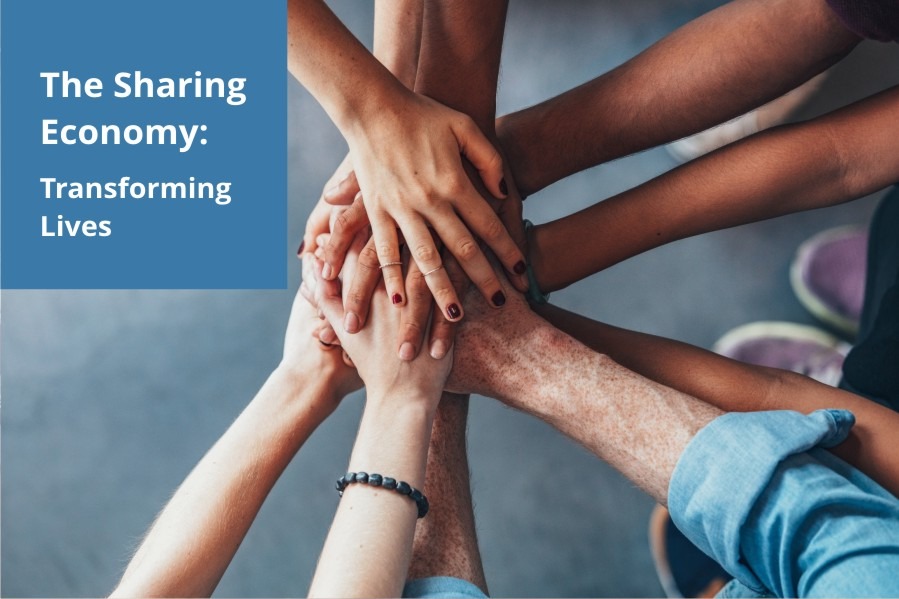The Experience Economy: Authentically Yours
The Experiential Aspects of Consumption
The term Experience Economy was first referred to in a 1998 article by B. Joseph Pine II and James H. Gilmore. It is defined as an economy of companies and organizations that conduct an experience business or one that charges for the feeling customers get by engaging it.
At some level, all goods and services are co-created or co-produced through the interaction between consumers and producers. Participants in the Experience Economy intentionally take this interaction to a higher level by incorporating many touchpoints throughout the customer’s experience. The goal is to increase loyalty, produce revenue and elevate the identity of their brand.
Each of Us are Defined by Our Experiences
Today’s consumers use experiences to reshape their identity through various ways. For some it is about creating life-long memories or developing a sense of community. For others it may be an attempt to gain a deeper understanding of the world. No matter what the reason, people who spend more on experiences value and define success differently than those who focus primarily on material goods.
Forward-thinking companies have adapted to this trend and continually seek ways to thrive by servicing this desire and focusing on staging events. There are two basic approaches. One is that an experience (or story) is used to sell a product or the other is that the experience itself is the product.
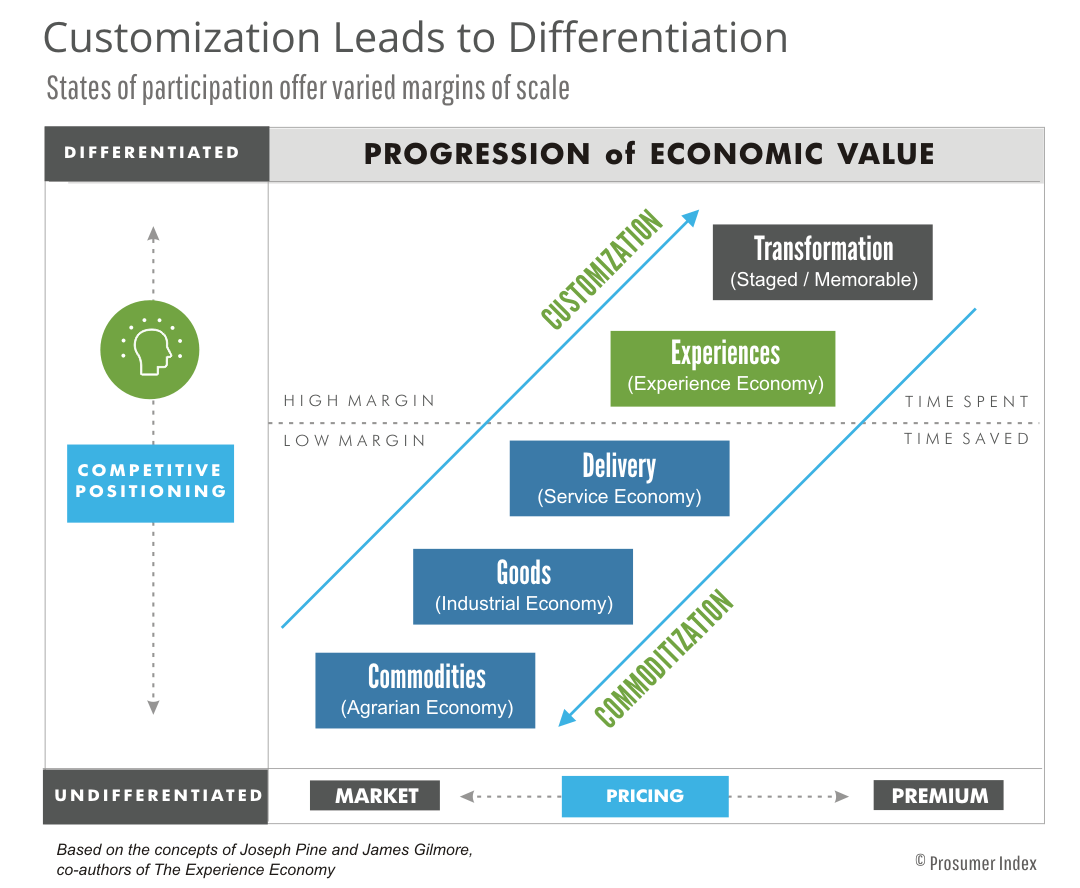
More evolved – and truly transformational brands – have established methods to combine both as they strive to not only address a physical need but also an emotional or psychological one. Increased levels of customization often lead to greater differentiation. A product or service with a greater differentiation generally holds a better position in the mind of the customer. Experience is the highest level of differentiation because it creates an emotional bond with the customer.
The Appetite for Experiences is Complex
The appeal to experience something is different for each of us. The rationale for participation and involvement can be for conscious or unconscious reasons, but for most of us at its core it primarily addresses an internal quest that we all have for belonging and inclusion.
According to Pine and Gilmore there are four individual realms of that define an experience. These realms are referred to as “the 4Es”. When experiencing something, we are motivated by the desire for entertainment, education, esthetics or escaping.
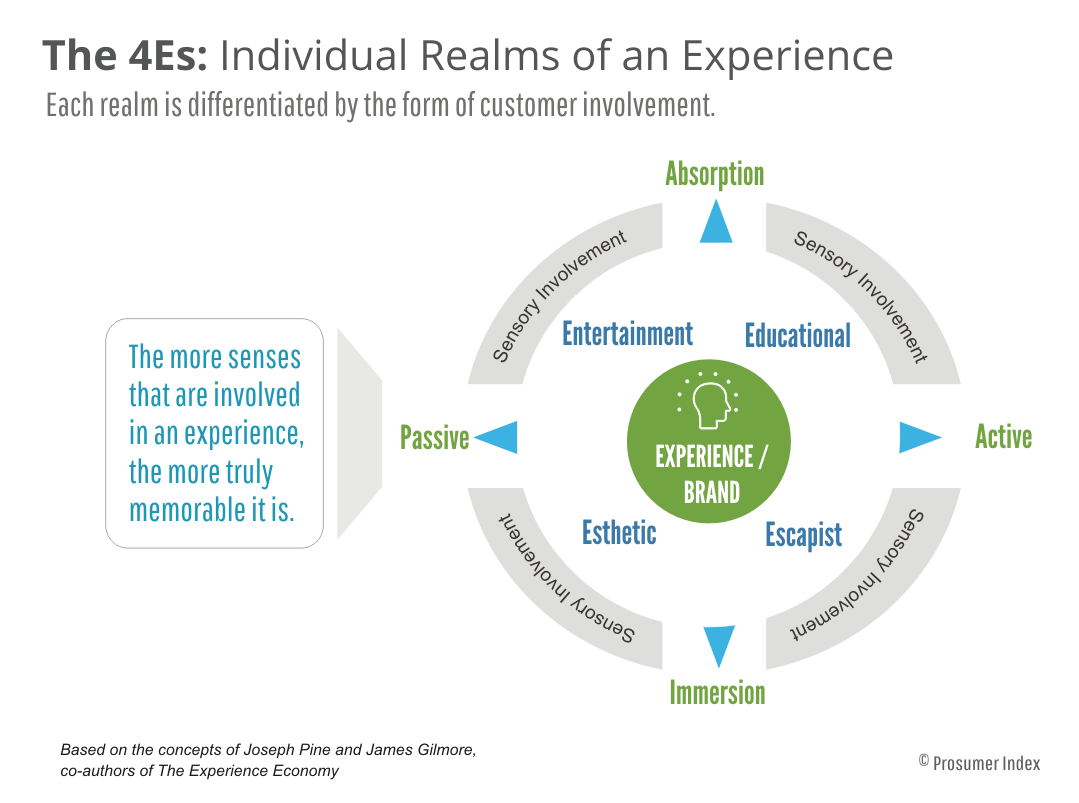
When making a connection based on experience additional variables come in to play that have an effect on us, such as our active/passive role in it and the degree we are absorbed by it or immersed in it. A single experience often combines one or more of these factors. In addition it has been determined that experiences that integrate sensory elements are the most effective and memorable. Studies have shown that meaningful experiences tend to create a greater and deeper long-term happiness than purchasing a physical product.
Social Sharing Soars
It is not a coincidence that growth in the Experience Economy coincides with the rise of social media. Today almost everyone has a camera with them at all times via their mobile devices. Our devices come complete with all the bells and whistles to required to enhance images and connect with others within seconds of an event happening. This is especially important for digital natives who view social sharing as a way to stay up-to-date, compare and stand out among their peers.
Prosumers have tapped in to this phenomenon as well. Each type of prosumer has a different motivation for wanting have an experience. Prosumers generally have one thing in common — sharing. It is the tie that binds them. For prosumers sharing an experience can take place on many levels. It can be as simple as liking a photo or writing a review — or as involved as donating time and energy to an event.
Industries Transformed
The Experience Economy is more than simply entertainment, it has evolved to become a strategic part of essential industries like heathcare, finance and home services. Education services and addressing social concerns are becoming more experiential as well.
In almost every sector, active participation is now often preferred by many to passive consumption. Recognizing this, brands realize that an experience can never be mass-produced. In order to be effective it must be customized and authentic to the individual experiencing it.
A New Source of Value
Many customers willing to spend far more on experiences than they do on material things. In fact, the Bureau of Economic Analysis has determined that in 2016, the U.S. economy spends 4x’s as much on experiences than on material goods. Purchased experiences tend to have a much higher margin than a basic price increase on a commodity. This is why a growing number of companies are striving to become experience-oriented. Organizations have come to terms with the reality that successful brands must go beyond offering far beyond just providing a product and find ways to provide and maintain positive experiences for their customers.
Learn About the Other Prosumer Related Economies
PLATFORM ECONOMY | SHARING ECONOMY | LIFESTYLE ECONOMY | CIRCULAR ECONOMY
Share Prosumer Index
Impacting Innovation. ProsumerIndex.com is an independent research site focused on identifying and following innovative prosumer-driven thematic trends that are driving the new economies and impacting global markets. This article is for informational purposes only and to provide general knowledge about Prosumers, related brands and companies. We do not provide investment advice or product recommendations. The information on this site should not be used as a substitute for business, professional financial, legal, accounting or tax guidance.

